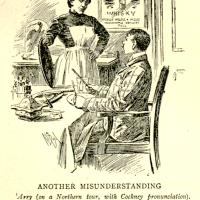 House of Dreams: The Life of L. M. Montgomery by Liz Rosenberg
House of Dreams: The Life of L. M. Montgomery by Liz Rosenberg
My rating: 4 of 5 stars
As I have blogged about before, L.M. Montgomery’s life lacked the fairy-tale endings of reward and romance that her characters (for the most part) experience. Though Montgomery fulfilled her dream of being an author by ascending to the heights of Canadian literary legend in her own life, married and had children, and cultivated a powerful public profile, Montgomery died unhappy and alone, after struggling for many years with worry, anxiety, mental illness, self-doubt, and thoroughgoing weariness. Writing about Montgomery’s life, then, requires rugged historical research and delicate storytelling sensitivity.
I quite enjoyed this popular biography of Lucy Maud Montgomery by Liz Rosenberg. Rosenberg has a pretty pen, writing in a light, engaging style about an author whose own literary style betrays the contrasts of light and darkness in her own life. House of Dreams: The Life of L. M. Montgomery is a strong, relatively brief biography of Canada’s most famous author, and she treats Montgomery well. While Rosenberg spends the most amount of time exploring Montgomery’s early years and initial literary success with Anne of Green Gables, I especially appreciated the last one-third of the biography where she loosens the chronology and deals with broader themes.
 House of Dreams is not a flawless book. The fictional experiment in chapter one needs some warning to the reader, I think, but the rest of the novel is researched biography, largely based on Montgomery’s journals. I do not know if Rosenberg gives us anything we cannot find in the much larger critical biography by Mary Rubio (The Gift of Wings, 2008)–except some distance from Montgomery’s last days–or in the journals and letters. The timeline is well done, and the illustrations by Julie Morstad are excellent. There are few errors, though I wonder sometimes if Rosenberg was not really aware of Prince Edward Island geography 110-140 years ago. As a local, I am probably overly sensitive about that sort of thing.
House of Dreams is not a flawless book. The fictional experiment in chapter one needs some warning to the reader, I think, but the rest of the novel is researched biography, largely based on Montgomery’s journals. I do not know if Rosenberg gives us anything we cannot find in the much larger critical biography by Mary Rubio (The Gift of Wings, 2008)–except some distance from Montgomery’s last days–or in the journals and letters. The timeline is well done, and the illustrations by Julie Morstad are excellent. There are few errors, though I wonder sometimes if Rosenberg was not really aware of Prince Edward Island geography 110-140 years ago. As a local, I am probably overly sensitive about that sort of thing.
Some other time I will deal with some key questions that make me dissatisfied with Montgomery biographies as a species (questions of mental illness, spirituality, religion, and the way historians open up places like the confessional, the bedroom, and certain closets).
 The key problem with this biography–and why it was nearly a 3-star review–is that Rosenberg does not continually remind the reader that she is getting most of her information from Montgomery’s own journals, which Montgomery herself admits are a kind of biographical fiction–a way of shaping her image for future generations. We know almost nothing about what Montgomery’s husband, for example, really thought about his wife, about her career as a writer, about his religious melancholy, or any of the dozens of other aspects of his interior life that are talked about in this biography. Without admitting that we are getting a highly filtered biography of Montgomery–as Rubio does in The Gift of Wings–we are in some degree of doubt about almost anything that has happened. It isn’t that Rosenberg lacks objectivity. There are a handful of times that Rosenberg admits her limitations, but for the most part we continue on in the fiction that we are dealing with history, rather than one woman’s story of her own history that she wanted people to believe.
The key problem with this biography–and why it was nearly a 3-star review–is that Rosenberg does not continually remind the reader that she is getting most of her information from Montgomery’s own journals, which Montgomery herself admits are a kind of biographical fiction–a way of shaping her image for future generations. We know almost nothing about what Montgomery’s husband, for example, really thought about his wife, about her career as a writer, about his religious melancholy, or any of the dozens of other aspects of his interior life that are talked about in this biography. Without admitting that we are getting a highly filtered biography of Montgomery–as Rubio does in The Gift of Wings–we are in some degree of doubt about almost anything that has happened. It isn’t that Rosenberg lacks objectivity. There are a handful of times that Rosenberg admits her limitations, but for the most part we continue on in the fiction that we are dealing with history, rather than one woman’s story of her own history that she wanted people to believe.
For fans of Montgomery’s fiction who want an outline of her life that Montgomery would appreciate, this is a well-written, engaging, four-star book that makes for good bedside reading or afternoon enjoyment. For scholars and historians, however, there is still something unsatisfying about the portrayal we have here–even if most of the broad strokes are accurate and fair, and the writing honours Montgomery sense of style and place in the world.






















Pingback: L.M. Montgomery Articles on A Pilgrim In Narnia #lmmi2020 #LMMontgomery | A Pilgrim in Narnia
Pingback: Is L.M. Montgomery’s Anne of Avonlea a Sequel or a Prequel? | A Pilgrim in Narnia